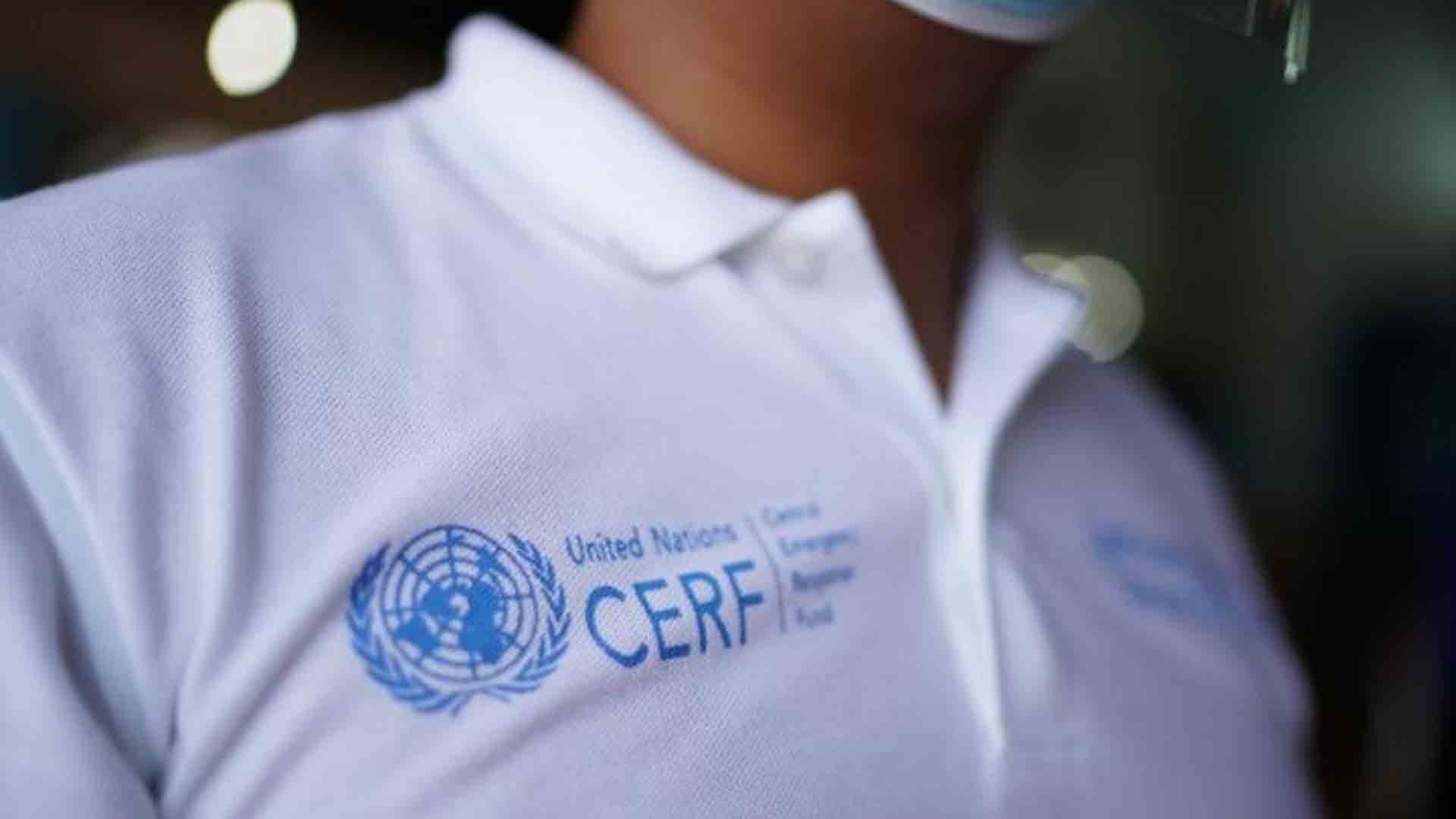In the provinces of Albay and Catanduanes, the United Nations (UN) Philippines is providing life-saving support that combines cash assistance, shelter repair, and water and sanitation facilities and improvements to help families affected by Typhoons Rolly (Goni) and Ulysses (Vamco) recover faster.
A high-level mission to assess the effectiveness of the integrated UN response in Albay and Catanduanes was led by UN Philippines Resident and Humanitarian Coordinator Gustavo Gonzalez on Jan. 27-30, 2021.
Gonzalez was joined by Ambassador Peter MacArthur of Canada, Ambassador Anke Reiffenstuel of Germany, representatives of the UN Office for the Coordination of Humanitarian Affairs (UN OCHA), International Organization for Migration (IOM) —the UN Migration Agency, United Nations Children’s Fund (UNICEF) and World Food Programme (WFP), and other humanitarian partners.
The UN Central Emergency Response Fund (CERF) made this integrated approach possible. In the aftermath of Super Typhoon Rolly, CERF approved an allocation of USD3.1 million (PHP150 million) for the Philippines to provide life-saving assistance to 55,000 most affected people in Albay and Catanduanes.
The funding allocation to UNICEF, IOM and the WFP allowed the three agencies to prioritize water supplies, sanitation services, hygiene, emergency shelter and food to address time-critical needs.
“The immediate needs of typhoon-affected Filipinos in Albay and Catanduanes are immense,” Gonzalez said in a news release on Tuesday. “We cannot be fragmented in our response if we are to meet their needs in a timely manner. Through CERF we are making sure that we are able to respond in a way that is unified and thus more impactful.”
This pilot approach by the UN has been reinforced by the use of a flexible and reliable beneficiary registration and transfer management platform called SCOPE. Administered by WFP, SCOPE has been particularly useful for joint cash assistance interventions by IOM, UNICEF and WFP because it prevents duplication, makes the beneficiary registration process easier as it is done only once, and utilizes a unified questionnaire developed by the three agencies.
Local government officials expressed their appreciation for the agencies’ combined support.
“The CERF projects add value in the immediate provision of support in the form of repair or reconstruction of WASH facilities, set-up of emergency shelter and distribution of repair kits, cash assistance for emergency livelihood, psychosocial support to at-risk communities, and cross-cutting protection support through community engagement as well as accountability to affected population,” said Dr. Cedric Daep, Department Head, Albay Public Safety and Emergency Management Office (APSEMO).
“We also value the way that the UN prioritized life-saving activities under CERF,” said Lemuel Surtida, provincial administrator of Catanduanes. “The UN followed closely the result of our assessment of needs and vulnerabilities after Typhoons Rolly and Ulysses.”
The provincial governments of Albay and Catanduanes also acknowledged the value of CERF in mobilizing bilateral donor funding.
They proposed that CERF would consider improving its early action criteria and act as a guarantor that unlocks multilateral funding mechanisms that support disaster risk reduction, climate change adaptation and local resilience.
The four-day mission noted a number of urgent needs in the two provinces. Fisherfolk need to repair or purchase fishing boats and nets. For the poorest families, fishing remains the main livelihood or source of income.
Local authorities need support for setting up abaca nurseries, as 80 percent of abaca plants in Catanduanes have been damaged by Super Typhoon Rolly.
The disaster risk reduction management office of Albay aims to establish permanent relocation and to construct permanent evacuation centers. Residential and community lots have been secured by local authorities but additional funding support to construct, repair or retrofit the houses is needed.
“A lot of work remains to be done in order to complete the process of rebuilding in Albay and Catanduanes,” Gonzalez said. “The UN is committed to the recovery of the affected Filipinos, and with the help of partners, we will stay the course.” (PNA)








